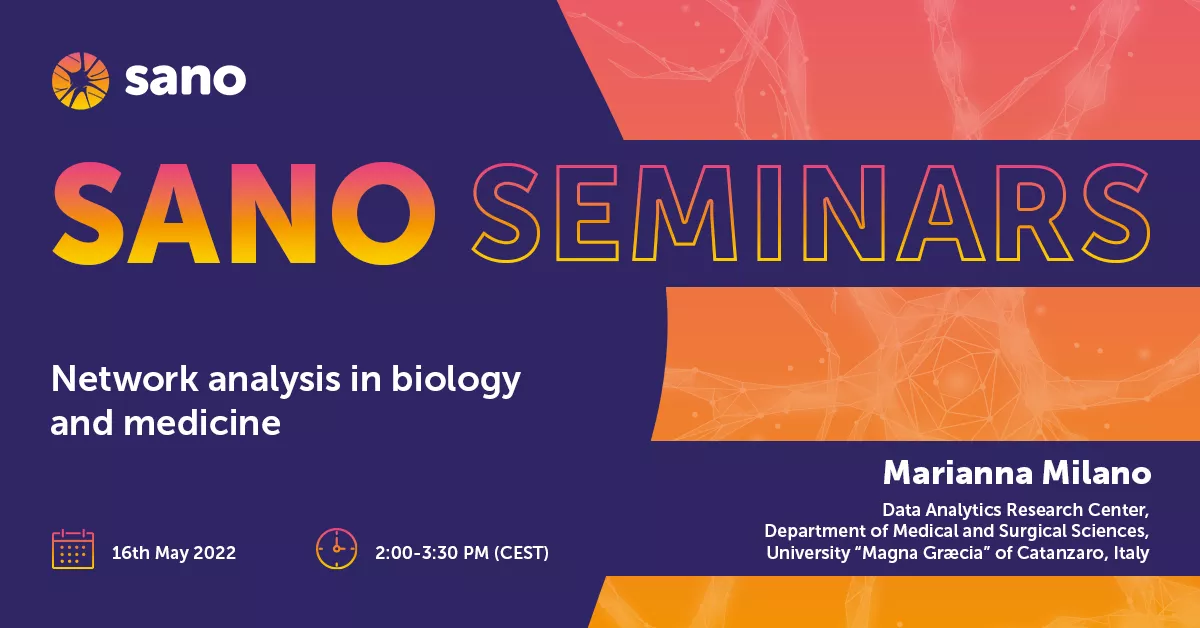
62. Network analysis in biology and medicine
Marianna Milano – Data Analytics Research Center, Department of Medical and Surgical Sciences, University “Magna Græcia” of Catanzaro, Italy
Abstract
The modelling and investigation of complex system through graphs that integrate biological, biomedical and clinical data, represent a hot topic for the research community. Since the study of associations in a system-level scale has shown great potential, the use of networks has become a de-facto standard and the application fields span from molecular biology to connectome analysis.
Networks and network analysis methods are a keystone in computational biology and bioinformatics and are more and more used to study biological and clinical data in an integrated way. Network analysis consists of a collection of techniques with a shared methodological perspective, which allow to depict relations among entities and to analyze the structures that emerge from the recurrence of these relations. The basic assumption is that better explanations of different phenomena are yielded by analysis of the relations among entities.
Network analysis can be applied to a single network (e.g. motif discovery, protein complex prediction) or more networks (e.g. comparison of two or more networks through network alignment).
The methods belonging to the first class analyze the properties of a single network and extract both the global and local properties of the graph. These properties are then used to infer knowledge. For example, in interatomic, the identification of small subgraphs that are statistically overrepresented can be used to identify functionally relevant modules. Similarly, network analysis is used to highlight highly connected regions, assuming they can encode protein complexes.
Furthermore, the methods belonging to the second class study the conservation and divergence of interactions between different species.
The talk introduces main biological and biomedical networks (e.g. PPI networks and Brain Connectome networks) and discusses some network analysis methods developed at the University “Magna Graecia” of Catanzaro.
About the author
Marianna Milano is an Assistant Professor at the University “Magna Graecia” of Catanzaro, Italy.
She received her Ph.D. degree in Biomarkers of Chronic and Complex Diseases at the University “Magna Graecia” of Catanzaro, Italy, in 2019.
Her research interests comprise semantic-based and network-based analysis of biological and clinical data, with special focus on:
- development of innovative algorithms for the analysis of clinical and omic data through the application of biological
knowledge formalized in ontologies; - the extraction of knowledge from biological and biomedical data;
- use of formal knowledge representation tools in the field of computational biology;
- development of algorithms for the analysis of biological and biomedical networks through the application of graph theory.
She published a book on Artificial Intelligence in Bioinformatics and more than 50 papers on international journals and conference proceedings.She is a member of BITS (Italian Bioinformatics Society).

